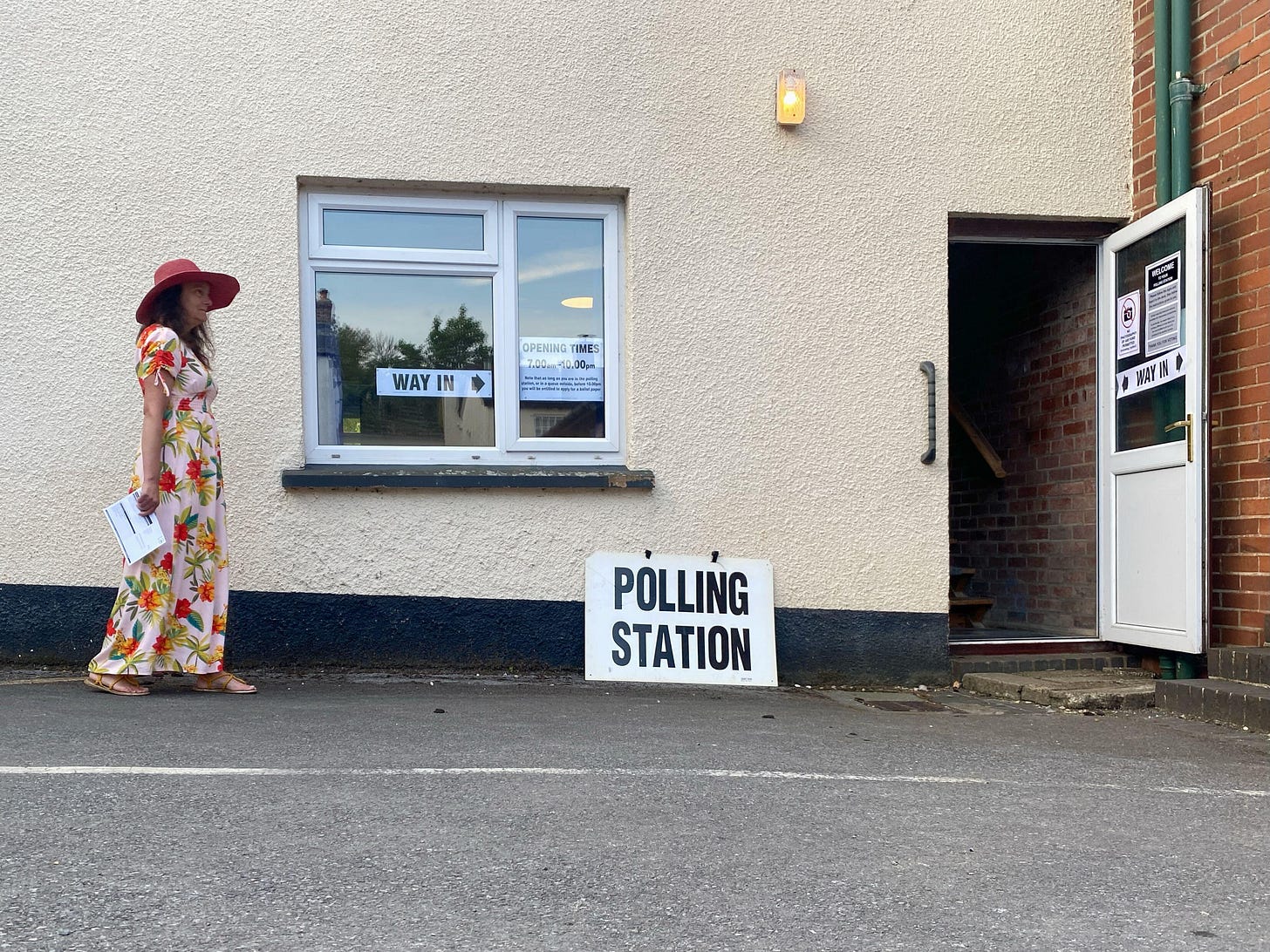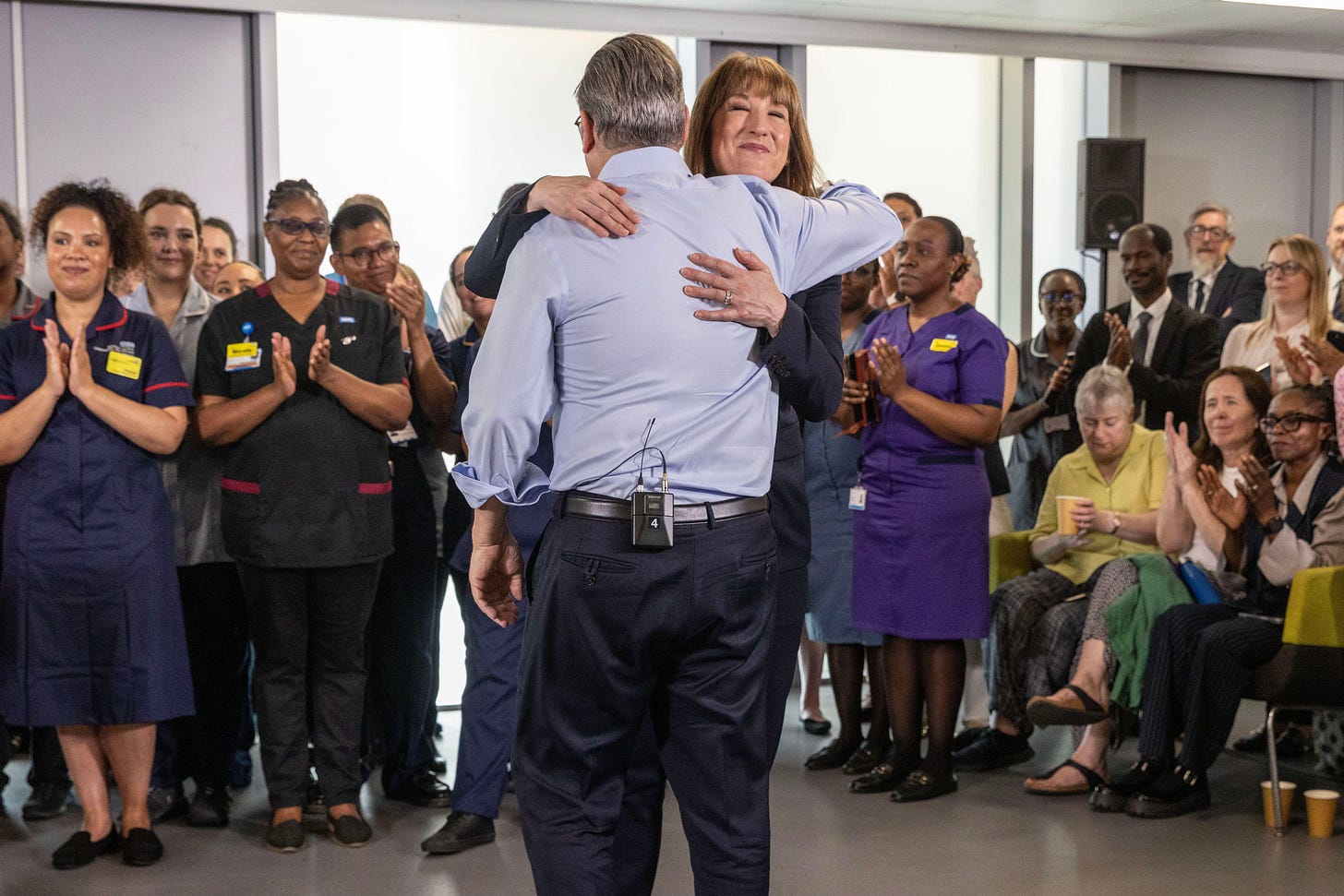Exactly one year on from Keir Starmer’s landslide election victory, Britain’s two-party political system is breaking.
A new YouGov poll, conducted just ahead of Labour’s election anniversary, sheds light on the public’s increasing aversion towards what have long been considered the two dominant political parties in the UK.
The poll has both Reform and the combination of the Lib Dems and Greens on 26 per cent of the vote share each. In other words, the equivalent of a Brexit-referendum majority is opting for someone other than Labour or the Tories.
As the Conservatives continue to languish around 17 per cent in the polls, warnings that the so-called “natural party of government” risks extinction abound.
Labour is hovering around 24 per cent, behind a surging Reform UK. Aside from creating the very real possibility that Nigel Farage could be Britain’s next Prime Minister, his party’s rise has destroyed the long-held assumption that losses for Labour automatically equate to gains for the Tories, and vice versa.
While the fracturing of the two-party system in Britain has intensified in recent months, it is not a new development in the last year.
Indeed, Labour’s popularity may have plummeted compared to a year ago but Starmer’s landslide election victory was somewhat deceptive when it came to gauging voter enthusiasm.
While Labour thrashed the Tories in 2024 and secured a massive majority, it did so with a small proportion of the vote - a mere 1.6 percentage points more than the vote share secured by Labour during Corbyn’s thrashing in the 2019 general election. And, in the 2024 election, Labour and the Tories together won just 57 per cent of the vote, their lowest joint vote share in history.
If those numbers come as a surprise, it’s worth remembering that Britain’s choice of voting system - First Past the Post as opposed to Proportional Representation - can sometimes conceal the extent to which smaller parties are sucking up support from disaffected voters.
The 2024 general election was the first time that four parties secured over 10 per cent of the vote: Labour, the Conservatives, the Liberal Democrats and Reform. And in this year’s local elections, that number rose to five, with the addition of the Greens. Meanwhile, the national equivalent vote share for the two “main” parties in May’s local elections plunged further, to 37 per cent.
This is a dramatic historical shift. For the last five decades prior to the 2024 election, the combined Tory and Labour vote was a number in the high 70s. Go back a little further still, to the 1950s, and there were two general elections when these powerful parties together won over 97 per cent of the national vote.
As Starmer marks one year in power, the emergence of a brand new political challenger has only reinforced the theme of Britain’s move to a multi-party voting system.
Last night, left-wing MP Zarah Sultana, who lost the Labour whip last July for voting to lift the two-child benefit cap, broke the news that she and Jeremy Corbyn are launching their own political party - “a new party, with other independent MPs, campaigners and activists across the country” - to challenge Starmer from the left, from the May 2026 elections onwards.
It remains to be seen how much momentum they can gather. According to Corbyn biographer Gabriel Pogrund, this new movement is off to a bumpy start after Corbyn was left “bewildered” that Sultana released a statement without consultation, before he had actually agreed to join the new left party. He has since put out his own statement, confirming “discussions are ongoing” about him forming a party with her in order to deliver “real change”.
Regardless of its future, Sultana’s announcement is another reminder that British politics is fracturing in all directions. The end of the two-party system has been prophesied many times before in British history, only for Labour and the Tories to hold firm. But this time, they may suffer a different fate.
Caitlin Allen
Deputy Editor
ON REACTION TODAY
Jenny Hjul
Reeves is stronger not weaker for her tears
Gerald Malone
Longborough delivers haunting interpretation of Debussy's only opera
ALSO KNOW
Russia’s record drone raid on Kyiv - Moscow unleashed its biggest drone strike on Ukraine of the war so far, launching some 550 drones and missiles in 11 hours, mostly targeting Kyiv. The assault came as Donald Trump expressed disappointment with Vladimir Putin following another unfruitful conversation between the two leaders.
US and Israel wait on Hamas ceasefire response - Hamas leaders are close to accepting a US ceasefire proposal but want stronger guarantees that any pause in hostilities would lead to a permanent end to the 20-month war, according to sources close to the group. Hamas officials issued a statement on Friday confirming that, before formally responding, they were talking to other “Palestinian factions” about new ceasefire proposals already accepted by Israel.
Taliban’s first formal recognition - Russia has formally recognised the Taliban government in Afghanistan, becoming the first country in the world to do so. The decision marks a major milestone for Taliban leaders, almost four years after they swept into Kabul and took power.
FIVE THINGS
Imperial Trump shows how to get things done, writes Gerard Baker, in The Times.
Is this really how we’re legislating now? asks Brendan Buck, in The New York Times.
This was Les Mis in the Commons – and Kemi Badenoch couldn’t resist hamming it up, writes Simon Jenkins, in The Guardian.
Stephen Kotkin asks: Where is Russia’s place in the world? In Engelsberg Ideas.





